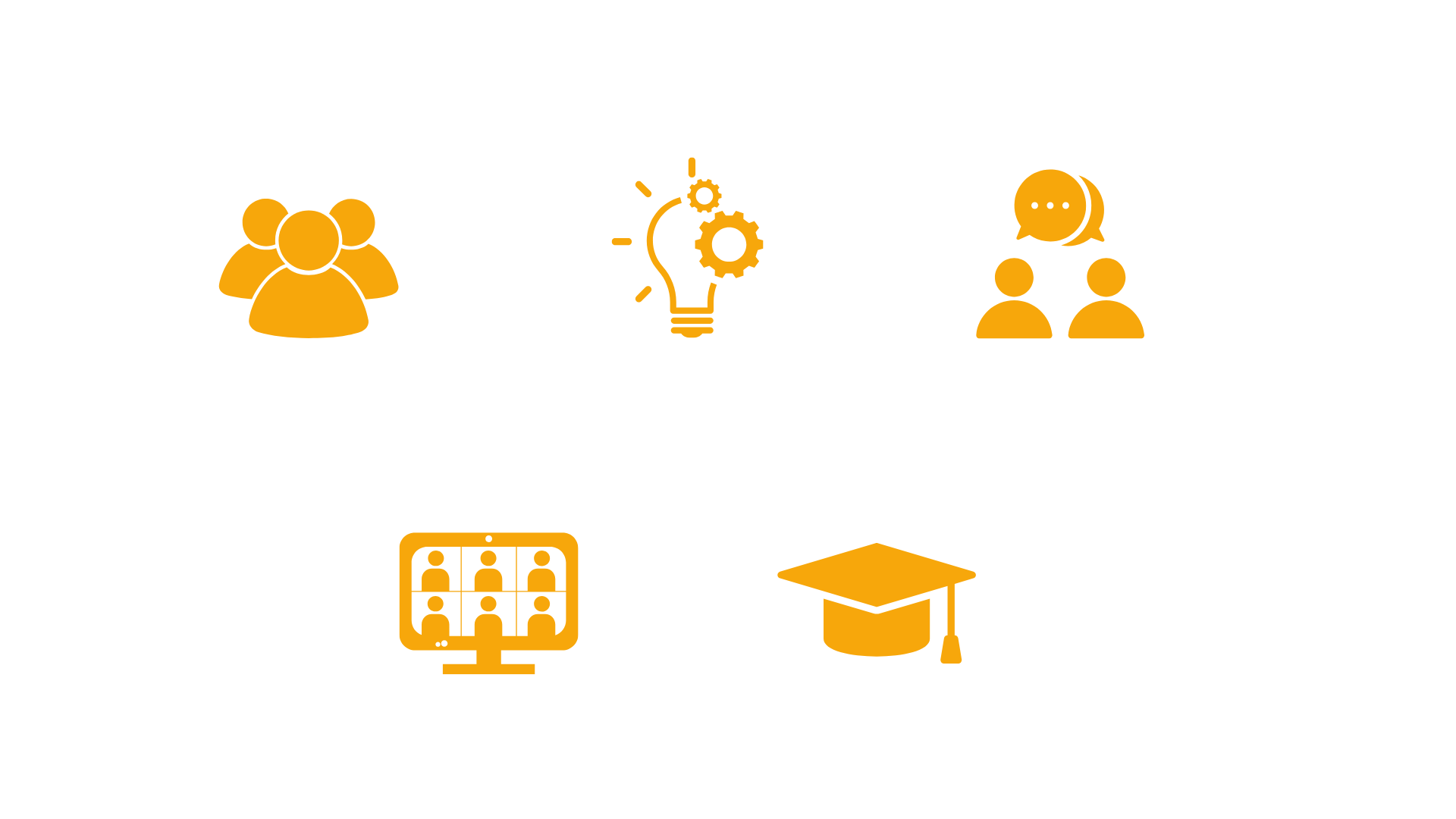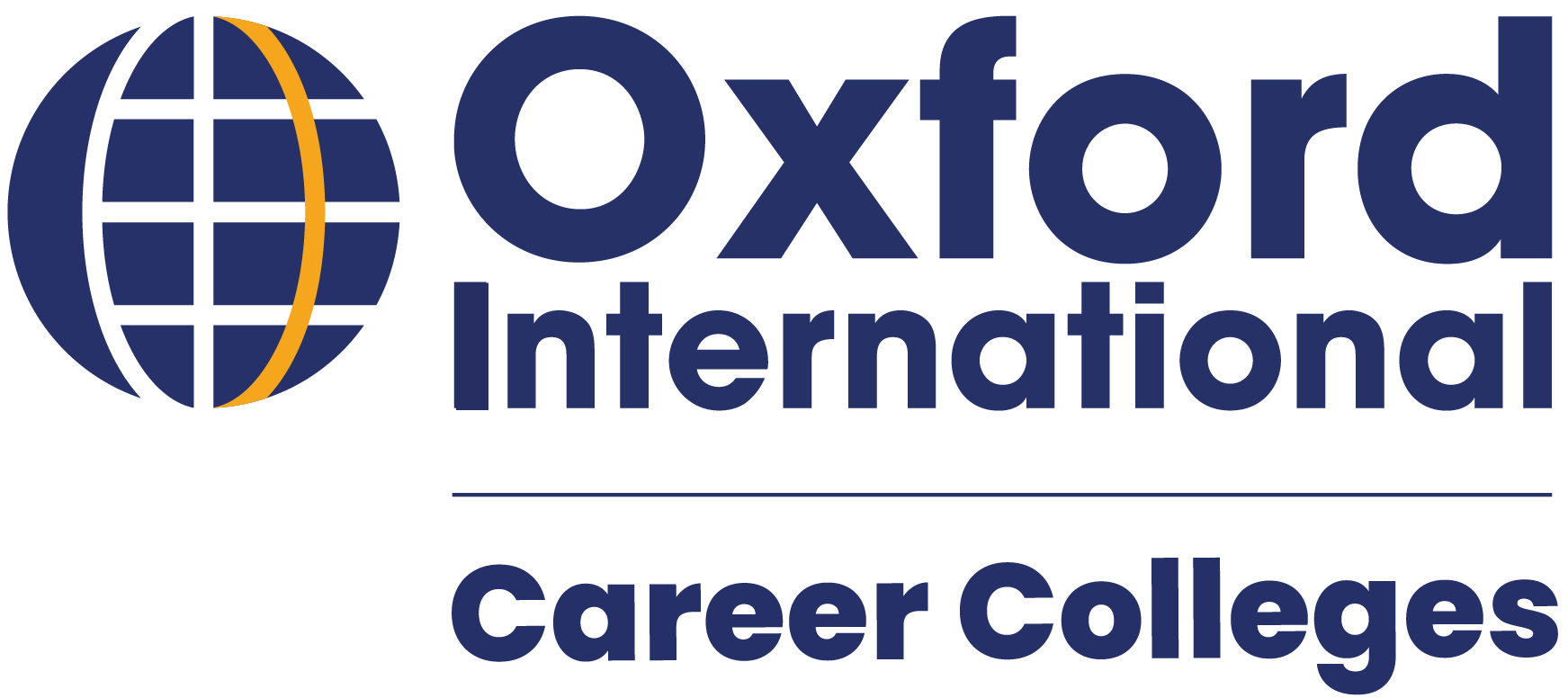Early Childhood Assistant (ECA) Diploma Program
- Achieve a recognized early childhood education credential
- Train for an in-demand field with career growth opportunities in Ontario
- Build on-the-job skills through guaranteed practicum placements
- Get access to Career Academy Canada and develop career readiness skills for success in the workplace
- Flexible learning options with hybrid program delivery
Get Started
Program Duration
40 Weeks | 1000 hours
Credential
Diploma
Location
OICC Toronto campus
Teaching Method
Hybrid
Get started on your early childhood education career path
About the Early Childhood Assistant (ECA) Program
Get started on your early childhood career path and learn how to make a positive, lasting impact on young children’s lives. Whether you’re fresh out of high school or looking to make a career move, our Early Childhood Assistant (ECA) Diploma program gets you into the workforce quickly while providing you with the valuable knowledge, hands-on skills, and experience employers are looking for.
Through our Early Childhood Assistant program, you will earn a Diploma which qualifies you to work as an ECA or in a related position in Ontario. As this is a NACC-licensed Early Childhood Assistant (ECA) program, students also have the opportunity to earn a NACC digital credential, providing they successfully complete the NACC Final Exam with a minimum passing grade of 65%.
What Will Students Learn?
The Early Childhood Assistant (ECA) Diploma program equips students with the necessary knowledge, hands-on skills, and soft skills required to succeed in this rewarding field. Early childhood is a field where you work directly with children and their families, building important relationships at a formative time in children’s lives. Through our program, you will learn how to help children build resiliency, develop social-emotional learning, and have a direct impact on children’s growth. Beyond the program courses, students participate in practicum placements under the guidance of experts in the field:
- 675 hours of online synchronous academic theory (32 weeks at 22.5 hours per week)
- 325 hours of in-person practicum placements (total 2 practicums; 8 weeks at 40 hours per week)
Develop all knowledge and core competencies ECAs require
Gain valuable insights from instructors that are experts in the field
Build critical skills through guaranteed practicum placements
Earn your CPR-HCP (Health Care Provider) certification

Hybrid Learning Model
The Early Childhood Assistant (ECA) Diploma program follows a Hybrid Learning Model. This allows students to either attend their theory classes in-person or online via Moodle, OICC’s Learning Management System (LMS). The theory classes are offered as synchronized learning, meaning students will be attending live lectures either in-person or online during set days and hours per week. Whether in the classroom or online, students’ learning will be supported by Moodle for all course activities and program resources.
All practicums must be completed in person. This allows students to receive the full experience as an ECA, preparing you for your future profession by practicing and enhancing learned skills within theory classes as well as developing more responsibilities within the field.
At OICC, we understand the benefits of in-person events as it creates a community of learning, allowing you to build meaningful and lifelong connections with your peers, instructors, and campus staff. Some of these events include:
- School orientation
- Career Academy Canada sessions, events, and related activities
- CPR-First Aid Certification

$43,680
average annual salary in Ontario
Good
job prospects in Ontario for ECAs in the next 3 years (4 out of 5 stars)
Early Childhood Assistant Career Opportunities
Early Childhood Assistants (ECAs) provide care for infants to school-aged children under the guidance of Early Childhood Educators (ECEs). Together, they lead children in activities to stimulate and develop their intellectual, physical, and emotional growth. ECAs work in childcare centres, daycare centres, kindergarten classrooms, agencies for exceptional children, and other settings.
The Government of Canada Labour Market Information reports that the employment outlook will be good for Early Childhood Assistants (NOC 4214) in Ontario for the 2024 – 2026 period. In fact, the Government of Ontario aims to create 86,000 new child care spaces by 2026.
Data reported on the Government of Ontario Job Bank.
Our Early Childhood Assistant Diploma program is designed to meet the demand for qualified and high-performing ECAs in Ontario by equipping our graduates with the right knowledge and skillsets required to succeed in this rewarding field. We’re here to help you get started on your new career path. Once you graduate from our Early Childhood Assistant Diploma program, popular career path options include:
- Early Childhood Assistant (ECA)
- Daycare Helper
- Child Care Worker Assistant
- Preschool Helper
- Educator Assistant – Junior Kindergarten
Program Courses
Our Early Childhood Assistant (ECA) program is licensed by NACC (National Association of Career Colleges), which means its content, standards, and guidelines are relevant, up-to-date, and in line with industry requirements. The NACC program was developed and is maintained by a committee of academic and industry experts.
During the ECA program, our students learn from highly qualified instructors that have years of experience in the field as Early Childhood Educators. Through our quality curriculum, students develop a thorough understanding of early childhood theory, techniques, and practices required to succeed in the field.
Foundations of Early Childhood Education
Communications
Infant and Child Development
Observation Skills
Health, Safety and Nutrition
Child, Family and Community
Introduction to Sociology
Play-Based Early Learning Strategies
Language and Literacy
Introduction to Psychology
Guiding Children’s Behaviour
Creating Inclusive Programs
Special Needs
Program Practicum Placements
As part of the ECA program, students are also required to participate in 325 hours of practicum placements in a full-time (40 hours per week) capacity.
These program placements are a fantastic way to not only build real-world skills but also improve your confidence and help you learn how to engage with and help develop young children. At OICC, we have a 100% practicum placement rate, meaning we guarantee our students will get the valuable opportunity to experience working as an ECA. We ensure placements are guaranteed by developing close relationships with various childcare centres.
Practicum I | 125 Hours
Placement Setting: Infant/Toddler classroom
Students will apply the basic principles of practice that they have learned in the classroom. During this placement experience, students will begin to develop a sensitive awareness of each child’s uniqueness by offering time for uninterrupted play, the opportunity to make choices, and the freedom to explore and interact with others. Faculty supervisors, who will visit agencies at pre-arranged times, will observe students in action with the children, clarify student expectations and responsibilities and provide feedback regarding strengths and needs.
Practicum 2 | 200 Hours
Placement Setting: Preschool classroom in licensed daycare centre, early learning centre, or kindergarten classroom
Students will apply the basic principles of practice learned in class. Faculty supervisors visit the agencies, observe students with children, clarify student expectations & responsibilities & provide feedback regarding strengths & needs.
Career Academy Canada
In today’s increasingly competitive job market, it can be overwhelming to navigate the professional world and understand what skills and attributes employers are looking for.
With Oxford International’s Career Academy Canada, we partner with you to:
- Identify, develop, and map out your career plan
- Build the skills you need to achieve your goals
- Expand your industry and employer networks in the field you’re interested in


ECA Program Start Dates
July 21st, 2025
August 18th, 2025
July 21st, 2025
August 18th, 2025
* The schedule is subject to change
About our OICC Toronto Campus

111 Peter Street #220, Toronto, ON M5V 1X1
Study in the heart of downtown Toronto, walking distance from the CN Tower, Rogers Centre, and Scotia Bank Arena. Our OICC Toronto campus is centrally-located with easy access by public transit and car, with parking available just across the street.
Our bright and modern classrooms, fun student vibe, and highly-qualified instructors foster a vibrant learning environment where you feel inspired to dig into your studies and achieve your career goals!
Before You Apply to the ECA Program
Scope of work as an ECA
The job of an ECA involves caring for children of all ages and working with families of all ethnic backgrounds. An ECA will be working with children who are very vulnerable and who will need help with their daily living activities such as feeding, mobility, and toileting.
Students taking the ECA program understand that it is a requirement of the program and the work of an ECA to adhere to the Canadian Character of Rights and Freedoms which states that all individuals have the right to equality before and under the law, without discrimination based on race, ethnic origin, colour, religion, gender, age of mental or physical disability.
Program fees
OICC Toronto campus is currently offering a $2,500 CAD Early Childhood Assistant (ECA) Diploma program tuition! Applicable for all students.
Program Fees for Domestic Students
| Tuition | Application | Materials | NACC Final Exam | Scholarship | Total |
| $10,100 | $100 | $1,200 | $100 | $2,500 | $9,000 |
Program Fees for International Students
| Tuition | Application | Materials | NACC Final Exam | Scholarship | Total |
| $13,700 | $500 | $1,200 | $100 | $2,500 | $13,000 |
Available scholarships
Available Scholarships for All Students
At OICC | Oxford International Career Colleges, there are a number of unique scholarships available to students that help you save big on tuition while rewarding you for your hard work and academic performance! Visit our Scholarships page to learn more about which scholarships you may be eligible for and how you can save up to 50% off your program tuition!
For the ECA program, all students are also eligible to receive a $2,500 program scholarship.
Available Scholarships for Domestic Students
For the May 2025 intake, we are offering all domestic students a special scholarship – pay $4,500 for all program fees and also receive $1,500 back when you successfully graduate from the program. In the end, that means you are only paying $3,000 for your high-quality ECA training!
Accommodation
Through OICC Toronto campus, we have three affordable accommodation options to choose from:
1. Fully-furnished shared apartments with private bedrooms through HOEM Student Residence.
2. Fully furnished single rooms through the Canadian College of Naturopathic Medicine (CCNM) student residence.
3. Full-board, half-board, or roomstay with a local family through Homestay.
ECA class schedule
ECA classes are either in-person or sychronous online and will be Monday to Friday from 9:00am – 2:30pm EST. Synchronous online classes are for domestic students only.
Admission Requirements for the ECA Program
Secondary School requirements
Applicants must provide proof of Secondary School education or equivalent through one of the following:
- Canadian Grade 12 Certificate, Diploma, or GED
- International Grade 12 or higher
- A student with a score of 14 or higher on the Wonderlic SLE (or other approved Ministry test)
Note: CAT and CAST are no longer eligible.
Language requirements
English language proficiency is demonstrated through one of the following:
- Academic IELTS 5.5 (no band below 5.5)
- Canadian Language Benchmarks Placement Test (CLBPT) minimum score of 7 in each strand
- TOEFL IBT 80 with the minimum in each component: Reading 20; Listening 20; Speaking 20; Writing 20
- CAEL Overall 60 with no section below 60
- Canadian English Language Proficiency Index Program (CELPIP) 7 with no section score below 6
- Duolingo English Test minimum score of 95
- Pearson PTE Academic minimum score of 46
- NACC Written Entrance Exam passing score of 60
Alternatively, applicants who are able to demonstrate 2 years of consecutive full-time academic study where the language of instruction was English are exempt from supplying an English proficiency exam for admission into OICC ECA program.
Other requirements
Applicants must also provide:
- A clear Vulnerable Sector Disclaimer
- A signed Medical Disclaimer
Applying to the ECA Program
I'm ready to apply
In order to apply to our Early Childhood Assistant (ECA) Diploma program, please fill out an online application. Once you submit your application, our Admissions team will be in contact with you within a few days to confirm the next steps.
If you aren’t sure that you can meet the admission requirements for the program, we recommend you connect with your Oxford International representative to learn more. If you do not have the English levels required, OICC Toronto campus offers pre-sessional English programs that provide direct entry to the ECA program.
I applied to the program
Well done! You’ve taken your first step towards a bright new future as an Early Childhood Assistant in Ontario.
Our Admissions team will review your application and any supporting documents. We know you’re eager to hear back from us and we’ll be in contact as soon as possible.
I received my conditional offer letter
Please read your conditional offer letter carefully and keep it safe! You’ll see the list of what you need to do to start your program at OICC Toronto campus. Please remember that it is your responsibility to meet any requirements or conditions outlined in your conditional offer letter.
In the conditional offer letter, we outline the start date we’ve offered you, the fees you need to pay, and any additional conditions you are required to meet before you enroll.
You are now able to book your ECA program interview to ensure you are a suitable candidate to begin the program. Your conditional offer letter will outline the steps you need to take to book your interview, including paying your application fee.
I passed my program interview
Congratulations! You have now met one of the major requirements shown on your conditional offer letter! Only those applicants that demonstrate they are a good fit for the ECA program pass their interview.
For Domestic Students
You will now be issued your official offer of admission and be permitted to enroll as a student in the OICC ECA program!
For International Students
You are now required to pay your tuition deposit and will be issued your Letter of Acceptance (LoA) and Provincial Attestation Letter (PAL). These are required documents in order to apply for your visas.
Apply for the Study Permit visa within 10 weeks of receiving the LoA and PAL. You also need to apply for the Co-op visa at this time.
I received my study and co-op work permits
For International Students:
Congratulations! You are now ready to begin your journey to becoming an ECA.
Read your documents carefully because they will say when you are able to travel. Do not travel before this date because you may be turned away at the border and this could impact your ability to enter Canada later on. Do not book flights or make travel arrangements until you have received confirmation from OICC that you have been given a seat in the program. We will tell you if there is still space for the program start date you have selected.
It is important that you arrive in time for the start of your program. With such an intensive program, we do not allow students to start late. Late starters would miss valuable learning and experiences. If you think you will not be in Canada in time for your program start date, please notify OICC Toronto campus immediately.
